![]()
Logion 16: Jesus said, “Perhaps people think that I have come to cast peace upon the world.”

Mar 21, 1923 — Feb 23, 2011
Shri Mataji Nirmala Devi was
Christian by birth, Hindu by
marriage, and Paraclete by duty.
"The Paraclete represents direct,
intimate divine intervention,
supporting and teaching
believers and challenging the
world, as Jesus did.” (D. Stevick
Jesus and His Own, 2011, 290)
“In between Jesus Christ and His destroying Incarnation of Mahavishnu called as Kalki there is a time given to human beings to rectify themselves, for them to enter into the Kingdom of God, which in the Bible is called as Last Judgment.
Shri Mataji Nirmala Devi was
Christian by birth, Hindu by
marriage, and Paraclete by duty.
"The Paraclete represents direct,
intimate divine intervention,
supporting and teaching
believers and challenging the
world, as Jesus did.” (D. Stevick
Jesus and His Own, 2011, 290)
The population of the Earth is at the maximum these days because all those — practically all those who had aspirations to enter into the Kingdom of God — are born in modern times and are going to be born very soon.
This is the most important times because Sahaja Yoga is the Last Judgment. It is fantastic to hear this but that's the fact. It's the Truth!
Though you can understand that Mother's Love makes it very easy for you to get to your Realization and that the whole story of Last Judgment — which looks such a horrifying experience — has been made very beautiful, and very tender, and delicate, and does not disturb you.”
The Paraclete Shri Matajii
Kundalini And Kalki Shakti, Bombay, India-September 28, 1979
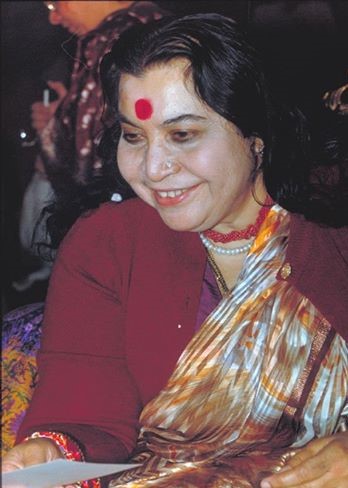
Shri Mataji Nirmala Devi (1923-2011): Christian by birth, Hindu by marriage and Paraclete by duty.
“That word, "another"—"He shall give you another Comforter"—is in itself sufficient to prove the Divinity and Personality of the Holy Ghost. If a man promises to send another as his substitute, we naturally expect to see a man like himself, occupying his place, and doing his work. And when Jesus foreannounced another Comforter, He must have intended a Person as distinct and helpful as He had been. A breath, an afflatus, an impersonal influence could not have stood in the same category as Himself.’ (Meyer 2008, 42)
“That word, "another"—"He shall give you another Comforter"—is in itself sufficient to prove the Divinity and Personality of the Holy Ghost. If a man promises to send another as his substitute, we naturally expect to see a man like himself, occupying his place, and doing his work. And when Jesus foreannounced another Comforter, He must have intended a Person as distinct and helpful as He had been. A breath, an afflatus, an impersonal influence could not have stood in the same category as Himself.’ (Meyer 2008, 42)
“Today I'm going to address you in English language, as desired by you. Even tomorrow, perhaps, we may have to use this foreign language. Today's subject is the relationship between Kundalini and Kalki. The word Kalki actually is an abbreviation of the word Nishkalanka. Nishkalanka means the same as My name is, which means Nirmala, that it is a spotlessly clean. Something that is spotlessly clean is Nishkalanka, without any spots on it.
Now this incarnation has been described in many Puranas, will be coming on this earth on a white horse, in a village of Sambhalpur. They call it, Sambhalpur.
It's very interesting how people take everything so literally. The word Sambhala means bhala is 'forehead', sambhala means 't that stage.' That means Kalki is situated on your bhala. Bhala is the forehead. And here He is going to be born. That is the real meaning of the word sambhalpur.
In between Jesus Christ and His destroying incarnation of Mahavishnu, called as Kalki, there is a time given to human beings to rectify themselves, for them to enter into the Kingdom of God, which in the Bible is called as Last Judgment. That you'll be judged, all of you, will be judged on this earth. The population of the world is the maximum, they say, because all those—practically all those who had aspirations to enter into the Kingdom of God—are born in the modern times and are going to be born very soon.
This is the most important time, because Sahaja Yoga is the Last Judgment. It is fantastic to hear this but that's the fact and it's the Truth. Though you can understand that Mother's Love makes it very easy for you to get to your Realization and that the whole story of Last Judgment—which looks such a horrifying experience—has been made very beautiful and very tender and delicate, and does not disturb you.
But this is the Last Judgment, I tell you, and you all are going to be judged through Sahaja Yoga whether you can enter into the Kingdom of God or not.”
The Adi Shakti Shri Mataji
Relationship between Kundalini and Shri Kalki
Bombay, India—September 28, 1979
“So many people in this world, how many are realized? Very few you will find. And today it is great naad (sound) of Kali Yuga there are so many animals today; the animals without tails.
But in this Kali Yuga itself, in this dirty mud, a great work has to be accomplished. You know it is happening. In this time, you must take as much as you can. Otherwise you will be thrown out of this evolutionary process. That time is not far away I told about it in 1979; that till 1979 this work has to be done and by the year 1999 Satya Yuga* will get fully matured.
Now it depends on your wisdom, otherwise Kali Yuga will also flourish because of you only. If you people won't like to work it out then the responsibility of destruction will be on your head.”
The Adi Shakti Shri Mataji
Keep the attention on your Self
Bombay, India—December 21, 1975
*The conjunction of two yugas [Kali Yuga and Satya Yuga]
"This non-profit website—which went online exactly on 1-1-2000, the beginning of the New Millennium—is thus for the human race to examine the revelations, miracles, knowledge, truths and prophecies of the Spirit-Paraclete and Her incarnation Shri Mataji Nirmala Devi, about the Kingdom of Spirit and the Resurrection.”www.adishakti.org homepage

“Betz (1963) unconvincingly argues for a Qumran background (the archangel Michael; cf. Shafaat 1981: 263-269, who likewise adduces DSS parallels; and Leaney 1972: 38-61, who says the Paraclete is God himself). Windisch (1968) advances the hardly more plausible hypothesis that the Paraclete is a kind of angel ... in human form’, be it a prophet or teacher. Johnston (1970) unsuccessfully proposes that the parakletos is an active divine power that has become embodied in certain leaders of the apostolic church, such as the fourth evangelist (see the critiques by Brown 1967:126 and 1971: 268-270, for whom the Paraclete is the ‘alter ego of Jesus’, 1967:132, cited in Smalley, 1996:297; cf. Burge 1987). Bultmann (1971: 566-572) views the concept as a Johannine appropriation of his Gnostic source’s figure of ‘helper’. Riesenfeld (1972: 266-274) postulates a sapiential provenance, which is equally unlikely. Boring( 1978:113-123) claims the Paraclete is an angel demythologized as the ‘spirit of prophecy’! Billington (1995: 90-115) appropriately stress the Paraclete’s role in mission. If the disciples are to witness to Jesus, they must understand the significance of his coming; witness to Jesus and the paraclete’s ministry are thus inseparable (15:26-27; 16:8-11;20:21-23). For a helpful discussion of the Paraclete as a part of the fourth Gospel's Lawsuit motif, esp. in 15:26- 16:15, see Lincoln 2000: 110-123, esp. 113-114.” (Kostenburger & Swain 2008, 97)
“To all the seekers of truth I bow I must say Dr. Warren has done a good job. Perhaps you don't understand that the situation is quite different in the western countries. I don't have to have any introduction in India.
Nor anybody has to give any apologies all the time, you see trying to convince getting this that into the whole argument; to prove that I'm the truth and that I'm genuine, that there's no hanky-panky about Me.
It's very embarrassing for Me to say and the background is like this: when I came to Australia this time from all over the world all the Sahaja yogis who are in the west, we have many in every country and they are known that this time Mother must say who She is.
It is important because the questions like this then how can You do it, how can it be easy are You the one who is doing—all kinds of questions coming and I just don't help. Please don't do it. It's not easy for a western mind to accept it you see. They all come on you. And you see and so I told you the same.
And it was accepted by many people because they felt the cool breeze. They did feel the cool breeze coming out of their heads. But but some did not and because they did not feel it, they challenged and they were angry about it
Now the position is like this that so far if your mind has been guiding you properly there was no need for Me to say it. We are living in the atmosphere of great confusion. Tremendous confusion exists. We don't know what is good what is bad. Some people say that it's better to have a unmarried life. Some say it's better to have the married life, some say it's better to keep the children out in the school, some say it is not.
The governments don't understand whether communism is all right or capitalism is all right. Economics is dwindling. Tthey don't understand what is happening.
So the result of all our enterprises is very confusing. And we don't understand really what is right and what is wrong. So we use whatever we think right as the right. But whatever we think as right, is it coming from something absolute or from relative because we are conditioned people?
For a lady who, say, comes from a catholic church she won't like me to tell her that I'm the Comforter or I'm the Holy Ghost. S she won't like it.
But I would ask her one question: supposing if I am how will she recognize me? If supposing tomorrow Christ comes in how would she recognize Christ?
It's a very apologetic you see, low based stuff which really I didn't want to start it because it takes you down to such a level that you just don't want to talk about it but it happens. With the western people you have to stoop down too low to convince them who you are.
Of course you are not going to crucify Me, I know. But you'll crucify yourself if you don't accept, that's the point. Because I have a concern, I have to do this job and I have to do it with great care that you are very great seekers you have been seeking truth for ages now and the time has come for you to get it.
And this is the time your western ego stands up and says that: �How can that be? Why it is You?� you see�
Christians don't know much about Holy Ghost at all I would say they don't want to know also they have never read any other book to know what is the Holy Ghost is.
But there are all the descriptions in details given as to how to recognize the Holy Ghost. But I must admit that this work I have never done before of giving en masse realization. This is the first time I have been able successfully to do this job which I have to work out. It's a great penance I have to go through by which I learned what problems human beings have�
Moreover there is also ego problem I have to balance it somehow. And that's why today because I told Dr. Warren that I had told you that I don't want to tell these people. And you and the people who telephoned to Me after called to Me that �Mother should be clear�.
And we did it and there is an opposition. So now you pay for it and that's why he wanted to make an apology for everything.
There's nothing to be apologetic. It is for you to receive it. The position is very different. It is you who have to ask for it. It's no gain for Me. I have nothing to gain. I have to give you something. and when I have to give you something then you have to get it yourself and not to doubt another.
What will you get by doubting? What are you going to get out of it?
So first of all to put down your mind in proper shape because it was too much of a shock yesterday to many people. There are people who said that: �All right today get Warren talk about these things and pacify them.� You see, it's like pacifying a son-in-law who is angry.”
THE MOTHER: Messiah-Paraclete-Ruh-Devi
Public Programme, Sydney, Australia—18 March 1983.
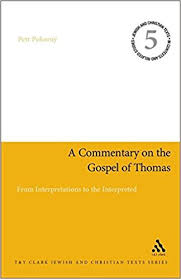
16
35, 31b-36, 5a
Jesus says:
“Perhaps the people think that
I have come to cast peace upon the earth.
2) But they do not know that
I have come to cast dissension
upon the earth: fire, sword, war.
3) For there will be five in a house:
There will be three against two
and two against three,
the father against son and
the son against father.
(4) And they will stand as solitary ones.”
“The point is that following Jesus is very demanding. Distancing oneself from the world provokes resistance from the other side. It causes divisions affecting even the closest relationships in the family (see log. 55, 61, and 101). Fire, sword, and war do not imply any militant or expansionist attitude on the side of Jesus' followers, but rather the risks run by those who follow the living Jesus on the way toward the heavenly Father. Division in the family (three against two in one house) is a phenomenon that has accompanied persecution and critical situations right through human history.
I have come is a metaphor for the whole of Jesus' earthly life (see, for example, John 5:43), or—expressed in the vocabulary of later Christian dogmatic—his incarnation.
Here we find a sentence about the solitary ones (Gr. And Copt. monachoi), which is not present in the Synoptic parallels. A solitary is a person who has come close to God and become aware of his/her own divine substance (see log. 4 and 23 and commentary). These form a group of individuals, every one of whom is directly linked with God, as expressed by Jesus' revelatory speech about the branch and trees in John 15;1-10. The solitary ones take their direct responsibility before God seriously.
The "I-came" saying has its parallel in Q (Luke 12:49, 52f.), where these words stress the momentousness of the expected apocalyptic judgment.”
A Commentary on the Gospel of Thomas
Petr Pokorny, T&T Clark; Reprint edition (December 22, 2011) p. 59-60
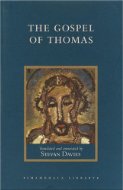
16a. Jesus said: People think, perhaps, that I have come to throw peace upon the world. They don't know that I have come to throw disagreement upon the world, and fire, and sword, and struggle.
16b. [For] there will be five in one house. Three will oppose two. Two will oppose three. The father will oppose his son and the son oppose his father. And they will stand up and they will be alone [monachos]
Ironically, the vast majority of Christians—in the United States at least—seem to think Jesus primarily as one who came to throw peace upon the world and to bring loving harmony to families. Evidently Jesus disagreed with that assessment. People whose notion of Jesus focuses on his status as 'Prince of Peace' seem to be relying exclusively on a phrase found in Isaiah 9:7 but found nowhere in the New Testament.
The final statement 'And they will stand up and they will be alone' use the term monachos, the Greek word for people who are single and alone; the English word 'monk' derives from monachos. In Thomas, the word characterizes those who opt out of worldly life to live in the direct presence of the Kingdom of Heaven.”
Stevan Davies & Andrew Harvey, Gospel of Thomas Annotated and Explained Reviews, Skylights Path (2006) pp. 20-1
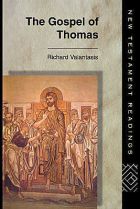
Saying 16
Jesus said," Perhaps people think that I have come to cast peace upon the world. They do not know that I have come to cast conflicts upon the earth: fire, sword, war. For there will be five in a house: there'll be three against two and two against three, father against son and son against father; and they will stand alone.
“Again the theme of conflict arises.Jesus suggests that some have interpreted the life promulgated in these collections as a peaceful one. That perspective certainly makes sense: the images of peaceful activity pervade the activities of interpreting sayings, of striving for spiritual development, of withdrawal from the dominant society, of yearning for self-knowledge, and of forming a community with others seeking self-knowledge. A peaceful transformation seems a logical and reasonable consequence of such goals: the reflective quality and educative orientation of these sayings implies such a degree of leisure and peace.
The new way of living promulgated in these sayings, however, emerges from conflict, from dissents, from both metaphorical and actual 'fire, sword, war.' Since the subjectivity and mode of living developed in these sayings draws a sharp distinction between those who know themselves and those who do not, and between those inside the community and those in the dominant exterior world, conflict becomes the primary means of self-articulation and definition. The development of the subjectivity pronounced here happens only in the conflict of the spiritual against the worldly, ignorance against knowledge, and the inside against outside. The conflict actually advances the new understanding of self, society, and world, because it stands at the heart of the creation of something new.”
Richard Valantasis, The Gospel of Thomas
Routledge; 1 edition (June 27, 1997) pp. 82-3
“The public was angered by their disbelief while the SYs were embarrassed by their 'belief'.”

“I am teaching, doing what Christ has already predicted about Me... What Christ has said [is that] ‘you are to be born again.’ What Christ has precisely said is that you have to become the Spirit.... I am here to give the answer. I am here to prove Christ. I am here to prove all that is written in the Bible. When, also is said ‘The Comforter is going to come and you are going to achieve it, by which you will know My Father, forever.‘ What Christ taught, that's what I am exactly doing.”
Messiah-Paraclete-Ruh-Devi
You Must Become the Spirit, Brighton, UK—May 14, 1982
Messiah-Paraclete-Ruh-Devi
You Must Become the Spirit, Brighton, UK—May 14, 1982
May 26, 2018
Yahoo forum post # 19463
Note: Though the teaching on the Holy Spirit in the Fourth Gospel is well in line with that of the New Testament in general, the insistence on the personal character of the Spirit is an important new emphasis, which has had profound consequences for Christian doctrine.
That the Paraclete Shri Mataji faced outright rejection in the early 1980s and the profoundly apologetic capitulation by SY leaders can be understood in terms of an angry, agitated Indian son-in-law demanding an immediate retraction of claim and profuse apologies, for starters.
He continues throwing tantrums for having being insulted as a guest, just like public members at Shri Mataji's program. There is some chaos and pandemonium as he raises his voice to bring down those soothing him in clasped-hand servitude, .................... and brings them down to groveling at the feet level. (Round 2 will continue when he returns home so that his mother can also help with the insults, threats and cussing.)
But few SYs understood Shri Mataji's pain and humiliation at this 1983 public program. They thought She was hurt by the angry reaction of the public. Little did they knew She was hurt far more by the cowardice of so-called self-realized souls than the anger of ignorant people.
When She said "You see, it's like pacifying a son-in-law who is angry", they should have immediately felt embarrassed and stood up against those demanding apologies. But like fools they always were and still are, the SYs went to great lengths to pacify those infuriated by the Paraclete's claims.
So what is that insult to injury? Shri Mataji had to endure the humiliation of being insulted by all - the public members angered by the Truth and the SYs embarrassed by it.
So what is my take on this insult to injury? The public was angered by their disbelief while the SYs were embarrassed by their 'belief'.
In the end, those angered were pleased that those apologizing disciples were actually on their side ............................. as disbelievers of Her claims to be the Paraclete sent in the name of Jesus to complete the message of the Last Judgment and Resurrection. Apologies accepted!
But the Paraclete is supposed to be a human being with a personal coloring as the appended article says so too.
life is eternal,
jagbir
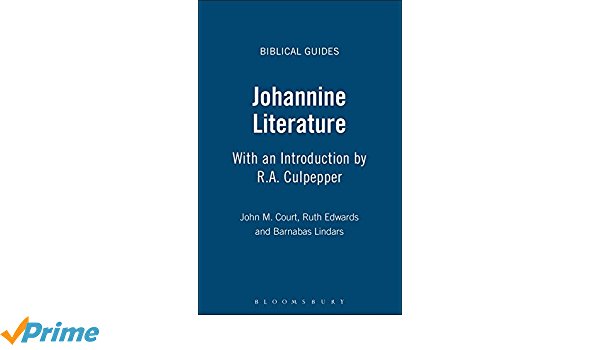
The Paraclete
“In the debates between Jesus and the unbelieving Jews, the evangelist has set out to show that Jesus surpasses the Law. But the Law remains always available, whereas Jesus has died and been withdrawn from view until his coming at the Parousia. However the teaching on the resurrection has claimed that his withdrawal is to be seen in a positive light as the means of establishing a permanent relationship with him in glory. Clearly it is necessary to say something more about this relationship, if their argument is to be complete. This is the context of John�s special teaching on the Holy Spirit.
The Spirit of God in the Old Testament is, like the Wisdom of God, an attribute of God himself, denoting his energy and creative power. It can be personified as a divine force, energizing the great heroes and inspiring the prophets. In a society which thinks of angels and lesser spirits there is a tendency to make God�s Spirit also a subordinate being of this kind. In Qumran, with its highly developed angelology, the Spirit of Truth is an angel opposed to the Spirit of Falsehood, who is the devil. In the Synoptic tradition Jesus has to distinguish his claim to be inspired by the Spirit of God from popular demonology (Mt. 12.24-32). The designation Holy Spirit (extremely rare in the Old Testament) came into currency in New Testament times to distinguish the Spirit of God from other spirits.
The Fourth Gospel has little use for angelology or demonology, but does reflect the Qumran type of dualism, with the devil as �the father of lies� (8.44). But although the expression �the Spirit of Truth� is used (14.17; 15:26; 16:13), this does not refer to a subordinate spirit, but to the Holy Spirit as the power of God himself. John�s special interest is the inspiration of Christians who live in fellowship with the exalted Jesus. Here again we can see a basis in the tradition. The picture of earliest Christianity in Acts shows that the gifts of the Spirit and the powers of the age to come are already available. Paul explains that, sharing in the sonship of Jesus as God�s children, Christians have the constant help of the Spirit (Rom. 8.12-17, 26-27). The way in which John makes this point in 7.37-39 is disconcerting, because it seems to imply that the Holy Spirit was not available for all (or did not even exist) before Jesus was glorified. But what it really means is that this function of the Spirit was not available before the completion of Jesus� saving work.
It is in connection with this function that Jesus can be said to be the giver of the Holy Spirit. This is expounded in the discourses at the Last Supper (14.16-17, 26; 15.26-16.15). Here it is shown that the Spirit will be the helper of the disciples�. The idea is enlarged further to include all the work of carrying forward the mission of Jesus. There is a literary debt to the tradition here (cf. Mt. 10.17-25, and the table of parallels in Brown, p. 694). This is where the unusual designation Paraclete (parakletos) comes in, which is variously translated �advocate�, �comforter�, �counsellor� or �helper�. The legal sense of advocate is probably basic in view of the function of the Spirit in the tradition (cf. Mt. 10.19-20), but John uses the word more broadly here. The point in John is that the Spirit is another Paraclete (14.16), to act as helper to the disciples in the place of Jesus himself.
John�s talk about the Paraclete has a strongly personal coloring. Precisely because the continuing relationship with Jesus in glory is a personal relationship, the power which he gives them, which is the power of God, can be no less personal. There is no suggestion in John that the Spirit is an impersonal; divine power that can be manipulated by a person whose heart is estranged from God.
Just as John�s doctrine of incarnation had immense influence on the subsequent development of Christology, so also the teaching on the Paraclete decisively affected the Christian idea of the Holy Spirit as a person within the Godhead, thus laying the foundation for the doctrine of the Trinity. But for John it is not a matter of a metaphysical theory, but of Christian experience which all believers can share.
Summary
John writes for people, whether friend or foe, whose idea of salvation in the religious quest is best expressed with the words �life� or �eternal life�. In interpreting the gospel message in this way, the evangelist does not teach a realized eschatology in which the future is wholly absorbed in the present. The point is that the conditions of the future are available now, anticipating the future consummation, which still remains a valid concept in its own right. It was also observed that this is an intellectual rather than a political understanding of salvation. This probably reflects the social milieu of the readers.
Cutting across the social divide, the teaching of Jesus, Paul and John conveys a new dimension in the religious thought of the time, which is best expressed today as an enhancement of the idea of personal relationship. So for John the essential means of grasping salvation is to �believe into� Jesus, which implies much more than intellectual assent to propositions about him. This is contrasted throughout the Gospel with a contemporary Jewish concept of the Law as the embodiment of the divine Wisdom and the means of eternal life.
Thus the Gospel is concerned with the qualifications of Jesus to be regarded as the means or agent of eternal life. In the Prologue and the discourses Jesus� capacity to achieve this purpose is contrasted with that of the Law, and he is found to have all the right qualifications. In addition to this contrast, John also builds on the contemporary conviction that the Scriptures are prophetic, revealing in advance God�s plan of salvation, which is now in process of actualization.
The Prologue shows both contrast and fulfilment in that, like the Law, Jesus is the embodiment of the pre-existent Wisdom/Word/Son of God, but surpasses and fulfils it. Reflecting the glory of God (like an only son of a father), he is the only real theophany of God, who is essentially beyond human sight.
The discourses attend to various aspects of salvation. It gradually become clear that the decisive difference between Jesus and the Law is the mutual indwelling of Jesus and the Father, and this is demonstrated supremely in his voluntary acceptance of the cross. So the death of Jesus is the climax of his revelation of the Father. It is at the same time the ultimate moral victory in which �the prince of this world� is overcome. Jon�s presentation of the death of Jesus in the passion narratives tones down the horror of crucifixion, emphasizing the fulfilment of Scripture, and Jesus� final word is �It is finished� (tetelestai, 19.30). The saving work of God is thus accomplished.
In connection with the passion it was shown that John uses the designation �Son of Man� to refer to Jesus as the agent of a human act which reveals the divine glory. This human act is his death on the cross, which is both a literal �lifting up� and at the same time his glorification. This provides the clue to John�s idea of the resurrection, which is the new relationship with God established as a result of Jesus� death.
In the interval before the parousia Christians have the help of the Holy Spirit, the Paraclete. Though the teaching on the Holy Spirit in the Fourth Gospel is well in line with that of the New Testament in general, the insistence on the personal character of the Spirit is an important new emphasis, which has had profound consequences for Christian doctrine.”
Johannine Literature: With an Introduction by R.A. Culpepper
Bloomsbury T&T Clark (May 1 2000) pp. 99-101
THE APOCALYPSE OF THE SPIRIT-PARACLETE
The fulfillment of the promised divine eschatological instruction
“The original meaning of the word ‘apocalypse’, derived from the Greek apokalypsis, is in fact not the cataclysmic end of the world, but an ‘unveiling’, or ‘revelation’, a means whereby one gains insight into the present.” (Kovacs, 2013, 2) An apocalypse (Greek: apokalypsis meaning “an uncovering”) is in religious contexts knowledge or revelation, a disclosure of something hidden, “a vision of heavenly secrets that can make sense of earthly realities.” (Ehrman 2014, 59)
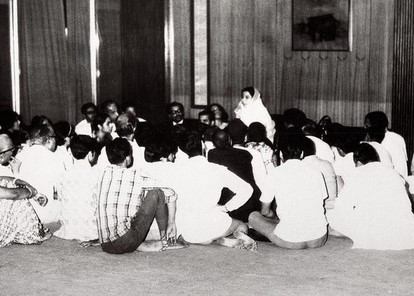
Shri Mataji Nirmala Devi (1923-2011) was Christian by birth, Hindu by marriage, and Paraclete by duty.
“The Paraclete will come (15:26; 16:7, 8, 13) as Jesus has come into the world (5:43; 16:28; 18:37)... The Paraclete will take the things of Christ (the things that are mine, ek tou emou) and declare them (16:14-15). Bishop Fison describes the humility of the Spirit, 'The true Holy Spirit of God does not advertise Herself: She effaces Herself and advertises Jesus.' ...
It is by the outgoing activity of the Spirit that the divine life communicates itself in and to the creation. The Spirit is God-in-relations. The Paraclete is the divine self-expression which will be and abide with you, and be in you (14:16-17). The Spirit's work is described in terms of utterance: teach you, didasko (14:26), remind you, hypomimnesko (14:26), testify, martyro (15:26), prove wrong, elencho (16:8), guide into truth, hodego (16:13), speak, laleo (16:13, twice), declare, anangello (16:13, 14, 15). The johannine terms describe verbal actions which intend a response in others who will receive (lambano), see (theoreo), or know (ginosko) the Spirit. Such speech-terms link the Spirit with the divine Word. The Spirit's initiatives imply God's personal engagement with humanity. The Spirit comes to be with others; the teaching Spirit implies a community of learners; forgetful persons need a prompter to remind them; one testifies expecting heed to be paid; one speaks and declares in order to be heard. The articulate Spirit is the correlative of the listening, Spirit-informed community.
The final Paraclete passage closes with a threefold repetition of the verb she will declare (anangello), 16:13-15. The Spirit will declare the things that are to come (v.13), and she will declare what is Christ's (vv. 14, 15). The things of Christ are a message that must be heralded...
The intention of the Spirit of truth is the restoration of an alienated, deceived humanity... The teaching role of the Paraclete tends to be remembered as a major emphasis of the Farewell Discourses, yet only 14:26 says She will teach you all things. (Teaching is, however, implied when 16:13-15 says that the Spirit will guide you into all truth, and will speak and declare.) Franz Mussner remarks that the word used in 14:26, didaskein, "means literally 'teach, instruct,' but in John it nearly always means to reveal.” (Stevick 2011, 292-7)
“The Paraclete will come (15:26; 16:7, 8, 13) as Jesus has come into the world (5:43; 16:28; 18:37)... The Paraclete will take the things of Christ (the things that are mine, ek tou emou) and declare them (16:14-15). Bishop Fison describes the humility of the Spirit, 'The true Holy Spirit of God does not advertise Herself: She effaces Herself and advertises Jesus.' ...
It is by the outgoing activity of the Spirit that the divine life communicates itself in and to the creation. The Spirit is God-in-relations. The Paraclete is the divine self-expression which will be and abide with you, and be in you (14:16-17). The Spirit's work is described in terms of utterance: teach you, didasko (14:26), remind you, hypomimnesko (14:26), testify, martyro (15:26), prove wrong, elencho (16:8), guide into truth, hodego (16:13), speak, laleo (16:13, twice), declare, anangello (16:13, 14, 15). The johannine terms describe verbal actions which intend a response in others who will receive (lambano), see (theoreo), or know (ginosko) the Spirit. Such speech-terms link the Spirit with the divine Word. The Spirit's initiatives imply God's personal engagement with humanity. The Spirit comes to be with others; the teaching Spirit implies a community of learners; forgetful persons need a prompter to remind them; one testifies expecting heed to be paid; one speaks and declares in order to be heard. The articulate Spirit is the correlative of the listening, Spirit-informed community.
The final Paraclete passage closes with a threefold repetition of the verb she will declare (anangello), 16:13-15. The Spirit will declare the things that are to come (v.13), and she will declare what is Christ's (vv. 14, 15). The things of Christ are a message that must be heralded...
The intention of the Spirit of truth is the restoration of an alienated, deceived humanity... The teaching role of the Paraclete tends to be remembered as a major emphasis of the Farewell Discourses, yet only 14:26 says She will teach you all things. (Teaching is, however, implied when 16:13-15 says that the Spirit will guide you into all truth, and will speak and declare.) Franz Mussner remarks that the word used in 14:26, didaskein, "means literally 'teach, instruct,' but in John it nearly always means to reveal.” (Stevick 2011, 292-7)
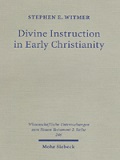
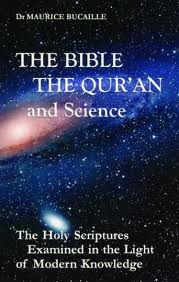
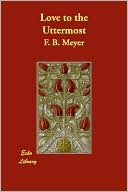
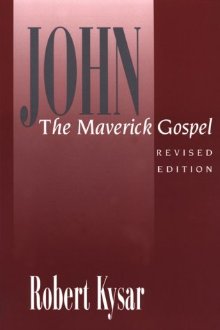
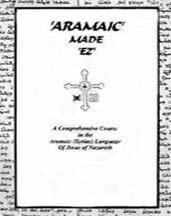
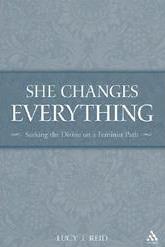
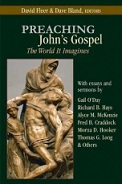
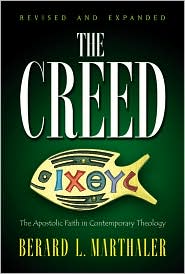
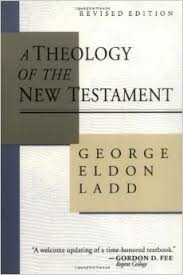
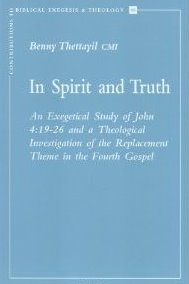

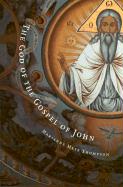
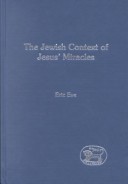
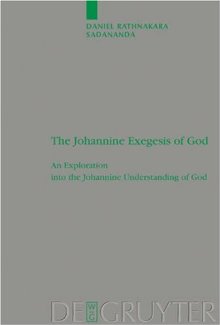

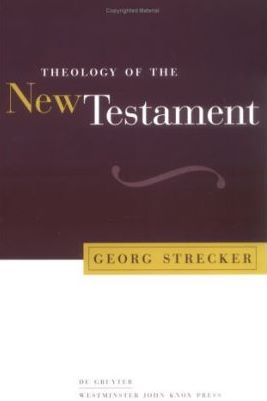
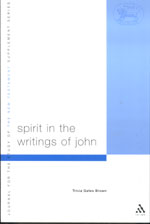
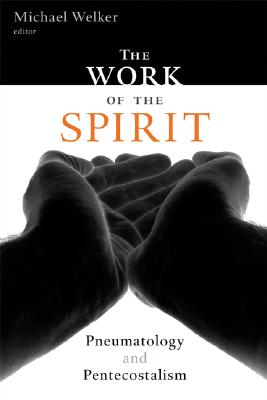
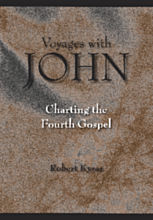
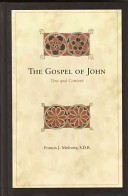
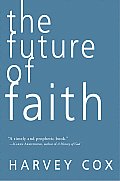
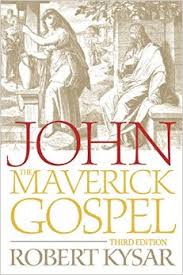
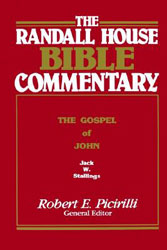

“The teaching of the Paraclete, as the continuation of Jesus' teaching, must also be understood as the fulfillment of the promise of eschatological divine instruction.”
Stephen E. Witmer, Divine instruction in Early Christianity
“Jesus therefore predicts that God will later send a human being to Earth to take up the role defined by John .i.e. to be a prophet who hears God's words and repeats his message to man.”
M. Bucaille, The Bible, the Qur'n, and Science
“And when Jesus foreannounced another Comforter, He must have intended a Person as distinct and helpful as He had been.”
F. B. Meyer, Love to the Utmost
“The Paraclete has a twofold function: to communicate Christ to believers and, to put the world on trial.”
Robert Kysar, John The Meverick Gospel
“But She—the Spirit, the Paraclete...—will teach you everything.”
Danny Mahar, Aramaic Made EZ)
“Grammatical nonsense but evidence of the theological desire to defeminize the Divine.”
Lucy Reid, She Changes Everything
“The functions of the Paraclete spelled out in verses 13-15... are all acts of open and bold speaking in the highest degree.”
David Fleer, Preaching John's Gospel
“The reaction of the world to the Paraclete will be much the same as the world's reaction was to Jesus.”
Berard L. Marthaler, The Creed: The Apostolic Faith in Contemporary Theology
Bultmann calls the “coming of the Redeemer an 'eschatological event,' 'the turning-point of the ages.”
G. Ladd, A Theology of the New Testament
“The Paraclete equated with the Holy Spirit, is the only mediator of the word of the exalted Christ.”
Benny Thettayil, In Spirit and Truth
“The divine Paraclete, and no lessor agency, must show the world how wrong it was about him who was in the right.”
Daniel B. Stevick , Jesus and His Own: A Commentary on John 13-17
Stephen Smalley asserts that “The Spirit-Paraclete ... in John's Gospel is understood as personal, indeed, as a person.”
Marianne Thompson, The God of the Gospel of John
“The Messiah will come and the great age of salvation will dawn (for the pious).”
Eric Eve, The Jewish context of Jesus' Miracles
“The remembrance is to relive and re-enact the Christ event, to bring about new eschatological decision in time and space.”
Daniel Rathnakara Sadananda, The Johannine Exegesis of God
“The Spirit acts in such an international situation as the revealer of 'judgment' on the powers that rule the world.”
Michael Welker, God the Spirit
The Paraclete's “Appearance means that sin, righteousness, and judgment will be revealed.”
Georg Strecker, Theology of the New Testament
“While the Spirit-Paraclete is the true broker, the brokers they rely on are impostors.”
T. G. Brown, Spirit in the writings of John
“The pneumatological activity ... of the Paraclete ... may most helpfully be considered in terms of the salvific working of the hidden Spirit.”
Michael Welker, The work of the Spirit
“The pneuma is the peculiar power by which the word becomes the words of eternal life.”
Robert Kysar, Voyages with John
“The gift of peace, therefore, is intimately associated with the gift of the Spirit-Paraclete.”
Francis J. Moloney, The Gospel of John
“This utopian hope, even when modestly expressed, links Jesus and the prophets to a much wider history of human longing.”
Harvey Cox, The Future of Faith
“Because of the presence of the Paraclete in the life of the believer, the blessings of the end-times—the eschaton—are already present.”
Robert Kysar, John
“They are going, by the Holy Spirit's power, to be part of the greatest miracle of all, bringing men to salvation.”
R. Picirilli, The Randall House Bible Commentary
“The Kingdom of God stands as a comprehensive term for all that the messianic salvation included... is something to be sought here and now (Mt. 6:33) and to be received as children receive a gift (Mk. 10:15 = Lk. 18:16-17).”
G. Ladd, A Theology of the New Testament
Stephen E. Witmer, Divine instruction in Early Christianity
“Jesus therefore predicts that God will later send a human being to Earth to take up the role defined by John .i.e. to be a prophet who hears God's words and repeats his message to man.”
M. Bucaille, The Bible, the Qur'n, and Science
“And when Jesus foreannounced another Comforter, He must have intended a Person as distinct and helpful as He had been.”
F. B. Meyer, Love to the Utmost
“The Paraclete has a twofold function: to communicate Christ to believers and, to put the world on trial.”
Robert Kysar, John The Meverick Gospel
“But She—the Spirit, the Paraclete...—will teach you everything.”
Danny Mahar, Aramaic Made EZ)
“Grammatical nonsense but evidence of the theological desire to defeminize the Divine.”
Lucy Reid, She Changes Everything
“The functions of the Paraclete spelled out in verses 13-15... are all acts of open and bold speaking in the highest degree.”
David Fleer, Preaching John's Gospel
“The reaction of the world to the Paraclete will be much the same as the world's reaction was to Jesus.”
Berard L. Marthaler, The Creed: The Apostolic Faith in Contemporary Theology
Bultmann calls the “coming of the Redeemer an 'eschatological event,' 'the turning-point of the ages.”
G. Ladd, A Theology of the New Testament
“The Paraclete equated with the Holy Spirit, is the only mediator of the word of the exalted Christ.”
Benny Thettayil, In Spirit and Truth
“The divine Paraclete, and no lessor agency, must show the world how wrong it was about him who was in the right.”
Daniel B. Stevick , Jesus and His Own: A Commentary on John 13-17
Stephen Smalley asserts that “The Spirit-Paraclete ... in John's Gospel is understood as personal, indeed, as a person.”
Marianne Thompson, The God of the Gospel of John
“The Messiah will come and the great age of salvation will dawn (for the pious).”
Eric Eve, The Jewish context of Jesus' Miracles
“The remembrance is to relive and re-enact the Christ event, to bring about new eschatological decision in time and space.”
Daniel Rathnakara Sadananda, The Johannine Exegesis of God
“The Spirit acts in such an international situation as the revealer of 'judgment' on the powers that rule the world.”
Michael Welker, God the Spirit
The Paraclete's “Appearance means that sin, righteousness, and judgment will be revealed.”
Georg Strecker, Theology of the New Testament
“While the Spirit-Paraclete is the true broker, the brokers they rely on are impostors.”
T. G. Brown, Spirit in the writings of John
“The pneumatological activity ... of the Paraclete ... may most helpfully be considered in terms of the salvific working of the hidden Spirit.”
Michael Welker, The work of the Spirit
“The pneuma is the peculiar power by which the word becomes the words of eternal life.”
Robert Kysar, Voyages with John
“The gift of peace, therefore, is intimately associated with the gift of the Spirit-Paraclete.”
Francis J. Moloney, The Gospel of John
“This utopian hope, even when modestly expressed, links Jesus and the prophets to a much wider history of human longing.”
Harvey Cox, The Future of Faith
“Because of the presence of the Paraclete in the life of the believer, the blessings of the end-times—the eschaton—are already present.”
Robert Kysar, John
“They are going, by the Holy Spirit's power, to be part of the greatest miracle of all, bringing men to salvation.”
R. Picirilli, The Randall House Bible Commentary
“The Kingdom of God stands as a comprehensive term for all that the messianic salvation included... is something to be sought here and now (Mt. 6:33) and to be received as children receive a gift (Mk. 10:15 = Lk. 18:16-17).”
G. Ladd, A Theology of the New Testament
“But today is the day I declare that I am the one who has to save the humanity. I declare I am the one who is Adishakti, who is the Mother of all the Mothers, who is the Primordial Mother, the Shakti, the desire of God, who has incarnated on this Earth to give its meaning to itself; to this creation, to human beings and I am sure through My Love and patience and My powers I am going to achieve it.
I was the one who was born again and again. But now in my complete form and complete powers I have come on this Earth not only for salvation of human beings, not only for their emancipation, but for granting them the Kingdom of Heaven, the joy, the bliss that your Father wants to bestow upon you.”
THE MOTHER: Messiah-Paraclete-Ruh
London, UK—December 2, 1979
“I am the one about which Christ has talked... I am the Holy Spirit who has incarnated on this Earth for your realization.”
THE MOTHER: Messiah-Paraclete-Ruh
New York, USA—September 30, 1981
“Tell all the nations and tell all the people all over the Great Message that the Time of Resurrection is here. Now, at this time, and that you are capable of doing it.”
THE MOTHER: Messiah-Paraclete-Ruh
Cowley Manor Seminar, UK—July 31, 1982
Guest: “Hello Mother.”
Shri Mataji: “Yes.”
Guest: “I wanted to know, is the Cool Breeze (Pneuma) that you have spoken about, you feel on the hands the Cool Wind of the Holy Spirit, as spoken about in the Bible?”
Shri Mataji: “Yes. Yes, yes, same thing, same thing. You have done the good job now, I must say.”
Interviewer: “Is it the Holy Spirit?”
Shri Mataji: “Yes, of course, is the Holy Spirit.”
Guest: “Aha... I am feeling it now on my hand through the [not clear]”
Shri Mataji: “It’s good.”
Interviewer: “Did you want to say anything more than that?”
Guest: “No, I just... That’s all I wanted to know because I...”
Shri Mataji: “Because you are thoughtless now. Enjoy yourself.”
Guest: “Thank you.”
THE MOTHER: Messiah-Paraclete-Ruh-Devi
Talkback Radio 2UE, Sydney, Australia—March 31, 1981
(The guest experienced the Cool Breeze [Pneuma/Prana/Chi] of the Spirit through the baptism [second birth by Spirit/Kundalini awakening]” given by the Comforter Shri Mataji over the radio. )
Second Guest: “I just want to ask Mother about a quotation from the Bible.”
Interviewer: “Yes, what’s that?”
Guest: “It says, ‘But the comfort of the Holy Spirit that the Father will send in My name would teach you all things.’ I would like to ask Her about that.”
Interviewer: “Could you just repeat the quotation again?”
Guest: “But the Comforter, the Holy Spirit, whom the Father will send in My name, will teach you all things.”
Interviewer: “And that’s from where?”
Guest: “John chapter 14, verse 26.”
Shri Mataji: “I think you should take your realization and then you will know the answer to it. Because, logically if it points out to one person, then you have to reach the conclusion, isn’t it? That’s a logical way of looking at things. But I am not going to say anything or claim anything. It is better you people find out yourself.”
Interviewer: “Does that answer your question?”
Guest: “Is the, is the Comforter on the Earth at the present time? Has the Comforter incarnated? Mataji should be able to tell us this because She said that through these vibrations on Her hands, She ...”
Shri Mataji: “Yes, She is very much here and She’s talking to you now. Can you believe that?”
Guest: “Well, I feel something cool [Pneuma/Prana/Chi] on my hand. Is that some indication of the ...?”
Shri Mataji: “Yes, very much so. So that’s the proof of the thing. You’ve already started feeling it in your hands.”
Guest: “Can I?”
Shri Mataji: “Ask the question, ‘Mother, are you the Comforter?’”
Guest: “Mother, are you the Comforter?”
Shri Mataji: “Ask it thrice.”
Guest: “Mother, are you the Comforter?”
Shri Mataji: “Again.”
Guest: “Mother, are you the Comforter?”
Shri Mataji: “Now, what do you get?”
Guest: “Oh, I feel this kind of cool tingling [Pneuma/Prana/Chi] passing all through my body.”
Shri Mataji: “That’s the answer now.”
THE MOTHER: Messiah-Paraclete-Ruh-Devi
Talkback Radio 2UE, Sydney, Australia—March 31, 1981
(Another guest also experienced the Cool Breeze [Pneuma/Prana/Chi] of the Spirit through the baptism [second birth by Spirit/Kundalini awakening]” given by the Comforter Shri Mataji over the radio. )
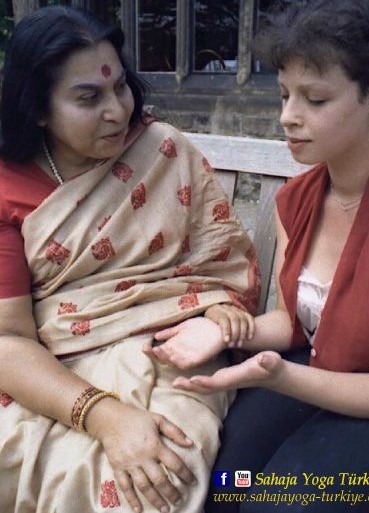
Shri Mataji Nirmala Devi (1923-2011): Christian by birth, Hindu by marriage and Paraclete by duty.
“The Paraclete and the disciples (vv. 25-26): The theme of departure (cf. vv. 1-6; vv. 18-24) returns. There are two "times" in the experience of the disciples: the now as Jesus speaks to them (v. 25) and the future time when the Paraclete, the Holy Spirit, sent by the Father in the name of Jesus, will be with them (v. 26). The Paraclete will replace Jesus' physical presence, teaching them all things and recalling for them everything he has said (v. 26). As Jesus is the Sent One of the Father (cf. 4:34; 5:23; 24, 30, 37; 6:38-40; 7:16; 8:16, 18, 26; 12:44-49), so is the Paraclete sent by the Father. The mission and purpose of the former Paraclete, Jesus (cf. 14:13-14), who speaks and teaches "his own" will continue into the mission and purpose of the "other Paraclete" (cf. v. 16) who teaches and brings back the memory of all that Jesus has said. The time of Jesus is intimately linked with the time after Jesus, and the accepted meaning of a departure has been undermined. The inability of the disciples to understand the words and deeds of Jesus will be overcome as they "remember" what he had said (cf. 2:22) and what had been written of him and done to him (cf. 12:16). The "remembering" will be the fruit of the presence of the Paraclete with the disciples in the in-between-time. In v. 16 Jesus focused on the inability of the world to know the Paraclete, but in v. 26 the gift of the Paraclete to "his own" is developed. As Jesus was with the disciples (v. 25), so will the Paraclete be with the disciples in the midst of hostility and rejection (v. 16). As the story has insisted that Jesus' teaching has revealed God to his disciples, so will the Paraclete recall and continue Jesus' revelation of God to the disciples (v. 26).” (Harrington 1998, 412)
“The Paraclete and the disciples (vv. 25-26): The theme of departure (cf. vv. 1-6; vv. 18-24) returns. There are two "times" in the experience of the disciples: the now as Jesus speaks to them (v. 25) and the future time when the Paraclete, the Holy Spirit, sent by the Father in the name of Jesus, will be with them (v. 26). The Paraclete will replace Jesus' physical presence, teaching them all things and recalling for them everything he has said (v. 26). As Jesus is the Sent One of the Father (cf. 4:34; 5:23; 24, 30, 37; 6:38-40; 7:16; 8:16, 18, 26; 12:44-49), so is the Paraclete sent by the Father. The mission and purpose of the former Paraclete, Jesus (cf. 14:13-14), who speaks and teaches "his own" will continue into the mission and purpose of the "other Paraclete" (cf. v. 16) who teaches and brings back the memory of all that Jesus has said. The time of Jesus is intimately linked with the time after Jesus, and the accepted meaning of a departure has been undermined. The inability of the disciples to understand the words and deeds of Jesus will be overcome as they "remember" what he had said (cf. 2:22) and what had been written of him and done to him (cf. 12:16). The "remembering" will be the fruit of the presence of the Paraclete with the disciples in the in-between-time. In v. 16 Jesus focused on the inability of the world to know the Paraclete, but in v. 26 the gift of the Paraclete to "his own" is developed. As Jesus was with the disciples (v. 25), so will the Paraclete be with the disciples in the midst of hostility and rejection (v. 16). As the story has insisted that Jesus' teaching has revealed God to his disciples, so will the Paraclete recall and continue Jesus' revelation of God to the disciples (v. 26).” (Harrington 1998, 412)
“This is the transformation that has worked, of which Christ has talked, Mohammed Sahib has talked, everybody has talked about this particular time when people will get transformed.”
THE MOTHER: Messiah-Paraclete-Ruh
Chistmas Puja, Ganapatipule, India—25 December 1997
“The Resurrection of Christ has to now be collective Resurrection. This is what is Mahayoga. Has to be the collective Resurrection.”
THE MOTHER: Messiah-Paraclete-Ruh
Easter Puja, London, UK—11 April 1982
“Today, Sahaja Yaga has reached the state of Mahayoga, which is en-masse evolution manifested through it. It is this day’s Yuga Dharma. It is the way the Last Judgment is taking place. Announce it to all the seekers of truth, to all the nations of the world, so that nobody misses the blessings of the divine to achieve their meaning, their absolute, their Spirit.”
THE MOTHER: Messiah-Paraclete-Ruh
MAHA AVATAR, ISSUE 1, JUL-SEP 1980
“The main thing that one has to understand is that the time has come for you to get all that is promised in the scriptures, not only in the Bible but all all the scriptures of the world. The time has come today that you have to become a Christian, a Brahmin, a Pir, through your Kundalini awakening only. There is no other way. And that your Last Judgment is also now.”
THE MOTHER: Messiah-Paraclete-Ruh
“You see, the Holy Ghost is the Mother. When they say about the Holy Ghost, She is the Mother... Now, the principle of Mother is in every, every scripture — has to be there. Now, the Mother's character is that She is the one who is the Womb, She is the one who is the Mother Earth, and She is the one who nourishes you. She nourishes us. You know that. And this Feminine thing in every human being resides as this Kundalini.”
THE MOTHER: Messiah-Paraclete-Ruh-Devi
Radio Interview, Santa Cruz, USA—1 October 1983
“But there is a Primordial Mother which was accepted by all the religions; even the Jews had it... In India, this is called as Adi Shakti. In every religion they had this Mother who was the Primordial Mother.”
THE MOTHER: Messiah-Paraclete-Ruh-Devi
TV Interview, Los Angeles, USA—11 October 1993

The Paraclete Shri Mataji (1923-2011)
Total number of Recorded Talks 3058, Public Programs 1178, Pujas 651 and Other (private conversations) 1249
“What are they awaiting but for the Hour to come upon them suddenly? Its Signs have already come. What good will their Reminder be to them when it does arrive?” (Qur'n, 47:18) “As the above verse indicates, God has revealed some of Doomsday's signs in the Qur'n. In Surat az-Zukhruf 43:61, God informs us that 'He [Jesus] is a Sign of the Hour. Have no doubt about it...' Thus we can say, based particularly on Islamic sources but also on the Old Testament and the New Testament, that we are living in the End Times.” Harun Yahya
Good News (An Naba) of Resurrection (Al-Qiyamah): Videos 3474, Audios 1945, Transcripts 3262 and Events 2413
“Concerning what are they disputing?
Concerning the Great News. [5889]
About which they cannot agree.
Verily, they shall soon (come to) know!
Verily, verily they shall soon (come to) know!”
surah 78:1-5 An Naba (The Great News)
5889. Great News: usually understood to mean the News or Message of the Resurrection.
Total number of Recorded Talks 3058, Public Programs 1178, Pujas 651 and Other (private conversations) 1249
“What are they awaiting but for the Hour to come upon them suddenly? Its Signs have already come. What good will their Reminder be to them when it does arrive?” (Qur'n, 47:18) “As the above verse indicates, God has revealed some of Doomsday's signs in the Qur'n. In Surat az-Zukhruf 43:61, God informs us that 'He [Jesus] is a Sign of the Hour. Have no doubt about it...' Thus we can say, based particularly on Islamic sources but also on the Old Testament and the New Testament, that we are living in the End Times.” Harun Yahya
Good News (An Naba) of Resurrection (Al-Qiyamah): Videos 3474, Audios 1945, Transcripts 3262 and Events 2413
“Concerning what are they disputing?
Concerning the Great News. [5889]
About which they cannot agree.
Verily, they shall soon (come to) know!
Verily, verily they shall soon (come to) know!”
surah 78:1-5 An Naba (The Great News)
5889. Great News: usually understood to mean the News or Message of the Resurrection.
Abdullah Yusuf Ali, The Holy Qur'n
Amana Corporation, 1989
[Moderator]: “Any other questions?”
[Audience]: “Pardon me for asking this question, but, earlier you talked about the Resurrection and you mentioned about the scriptures, where like in the Hindus scriptures they talk about the Kalki Avatar who will come for the Resurrection, and for the Christians, I know they talk about the return of Christ and all the religions talk about this Resurrection and the belief in the coming of the Messiah. So I just want to know since you say you are going to give the resurrection to us, what is your station?”
Shri Mataji: “In Russia?”
[Audience]: “And are you the promised Messiah? Shri Mataji, are you?”
Shri Mataji: “I see now I am not going to tell you anything about myself, to be very frank. Because see Christ said He was the Son of God, and they crucified Him. I don't want to get crucified. You have to find out. When you become the Spirit you will know what I am. I don't want to say anything about myself.”
THE MOTHER: Messiah-Paraclete-Ruh
Toronto, Canada—October 5, 1993
“Jesus then goes on the offensive against the scribes and Pharisees, pronouncing seven woes against them (Matt. 23:1-36). The final woe identifiers them with all those in Israel's history who have murdered and opposed the prophets. From Abel to Zechariah, all the blood of the righteous will come on them as they typologically fulfill this pattern in the murder of Jesus (23:29-36). They are the wicked tenants who think to kill the son and take his inheritance (21:38). They are seed of the serpent, a brood of vipers (23:33). Their house (the temple?) is desolate, and they will not see Jesus again until they bless him as he comes in the name of the Lord (23:37-39). Somehow, through the judgments Jesus announces against them, salvation will apparently come even for the people of Israel. As Olmstead puts it, Matthew "dares to hope for the day when many of Israel's sons and daughters will embrace Israel's Messiah (23:39), and in that hope engages in a continued mission in her.”” Hamilton 2010, 377
“It is the Mother who can awaken the Kundalini, and that the Kundalini is your own Mother. She is the Holy Ghost within you, the Adi Shakti, and She Herself achieves your transformation. By any talk, by any rationality, by anything, it cannot be done.”
THE MOTHER: Messiah-Paraclete-Ruh-Devi
“She is your pure Mother. She is the Mother who is individually with you. Forget your concepts, and forget your identifications. Please try to understand She is your Mother, waiting for ages to give you your real birth. She is the Holy Ghost within you. She has to give you your realization, and She's just waiting and waiting to do it.”
THE MOTHER: Messiah-Paraclete-Ruh
Sydney, Australia—Mar 22 1981
“The Kundalini is your own mother; your individual mother. And She has tape-recorded all your past and your aspirations. Everything! And She rises because She wants to give you your second birth. But She is your individual mother. You don't share Her with anybody else. Yours is a different, somebody else's is different because the tape-recording is different. We say She is the reflection of the Adi Shakti who is called as Holy Ghost in the Bible.”
THE MOTHER: Messiah-Paraclete-Ruh-Devi
Press Conference July 08 1999—London, UK
“The Great Goddess is both wholly transcendent and fully immanent: beyond space and time, she is yet embodied within all existent beings; without form as pure, infinite consciousness (cit) ... She is the universal, cosmic energy known as Sakti, and the psychophysical, guiding force designated as the Kundalini (Serpent Power) resident within each individual. She is eternal, without origin or birth, yet she is born in this world in age after age, to support those who seek her assistance. Precisely to provide comfort and guidance to her devotees, she presents herself in the Devi Gita to reveal the truths leading both to worldly happiness and to the supreme spiritual goals: dwelling in her Jeweled Island and mergence into her own perfect being.” (Brown, 1998, 2)
Disclaimer: Our material may be copied, printed and distributed by referring to this site. This site also contains copyrighted material the use of which has not always been specifically authorized by the copyright owner. We are making such material available to our readers under the education and research provisions of "fair use" in an effort to advance freedom of inquiry for a better understanding of religious, spiritual and inter-faith issues. The material on this site is distributed without profit. If you wish to use copyrighted material for purposes other than “fair use” you must request permission from the copyright owner.